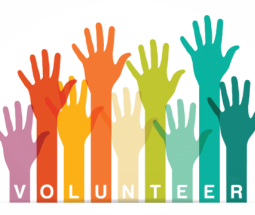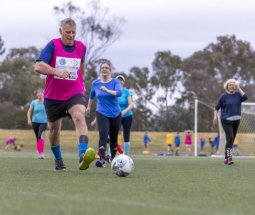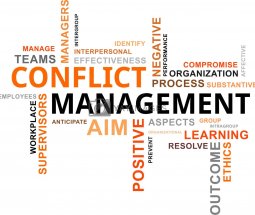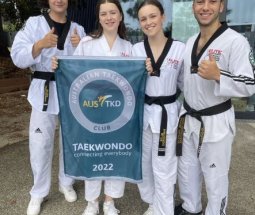Supporting Diversity
Clubs can be proactive in building a diverse membership base that reflects the community mix and can benefit in many ways including:
- Attracting new members and potential volunteers
- Enhancing your club's image and profile as an organisation that supports all members of the community
- Becoming a more interesting place to be - we can all learn a great deal from others
- Access to funding - there are a number of grants which support participation options for e.g. newly arrived, people with a disability, older adults
Supporting diversity requires a commitment in a range of areas across the club. Select from below for ideas on how your Club can demonstrate its level of inclusion.
- Actively Recruiting for Diversity
- Club Decision Making
- Club Coaches
- Volunteers and Officials
- Atmosphere
Club Decision Making
It is important for all members to have opportunities to be included in club decision making. Encouraging involvement promotes inclusion, a strong sense of belonging and values club members who may have important contributions to make.
Clubs may provide a range of opportunities for people to be involved. This can include promoting opportunities to volunteer on the club committee, sub-committees, and involvement in club forums, planning meetings and feedback processes (consultation).
Club Coaches
Coaches play a vital role within clubs and need positive guidance and support.
This support begins by providing coaches with a clear understanding of the club's philosophies to coaching and junior development. These may include Codes of Conduct covering issues such as a fair go for everyone, sledging, verbal abuse and operating within the spirit of the game. These may be avaialbale from your State Sporting Association.
Coaches should be adequately accredited and encouraged to attend appropriate training and relevant workshops to enhance their skills, gain knowledge and develop best practice approaches to coaching.
Clubs should be sensitive to the needs of participants and pass any relevant information to the club’s coaches. Coaches should be encouraged to adapt training and coaching techniques to include everyone. Clubs are encouraged to look at a range of modified and inclusive activities.
Volunteers and Officials
Offering a range of opportunities to participate in a club, provides added club support and creates a valuable way for people to feel included. This may be in the form of ongoing roles or just involving people in one-off ways.
Volunteers and officials should be given appropriate information, job descriptions, induction and support to fulfill their duties. People should be adequately matched to achievable tasks and be comfortable and confident in their role. It is always a good idea if you can pair people up when they first start in a role to assist them to learn the ropes.
Recognition of volunteers is also vital to the success of your club and encourages ongoing participation and recruitment opportunities.
Eventhough not all officials are unpaid, they are vitally important to your sport. Some of the umpires for example are young people who do not have a great deal of experience. It is not helpful to their development to have people yelling out at them. Coaches should take the lead about treatment of umpires with players and spectators "umpires are right, even if they're wrong!"
Atmosphere
Creating a positive atmosphere enables new members to feel comfortable and welcome.
A great club atmosphere doesn't just happen however. It is the result of people's efforts and club structures that are conducive for all people to participate e.g. encouraging the involvement of women as volunteers etc in male dominated sports helps them to feel part of the club and encourages other women to become involved.
Clubs may like to consider policies around behavior, language, alcohol consumption to ensure that the club atmosphere is not offensive to some members and exclude participation.
Learn More
Hear from Courtney Hagen (She/Her), First Nations & Social Inclusion Specialist at Cricket Australia, about:
-her journey and experiences in sport;
-the barriers she has faced and the exclusion she has seen in sport;
-how she sees the inclusiveness of community sport generally at present;
-tips for how community sporting organisations can be more inclusive of Aboriginal and Torres Strait Islanders, and people from the CALD community generally; and
-simple things clubs could look at, or do within their own environment, as quick wins to be more inclusive.





